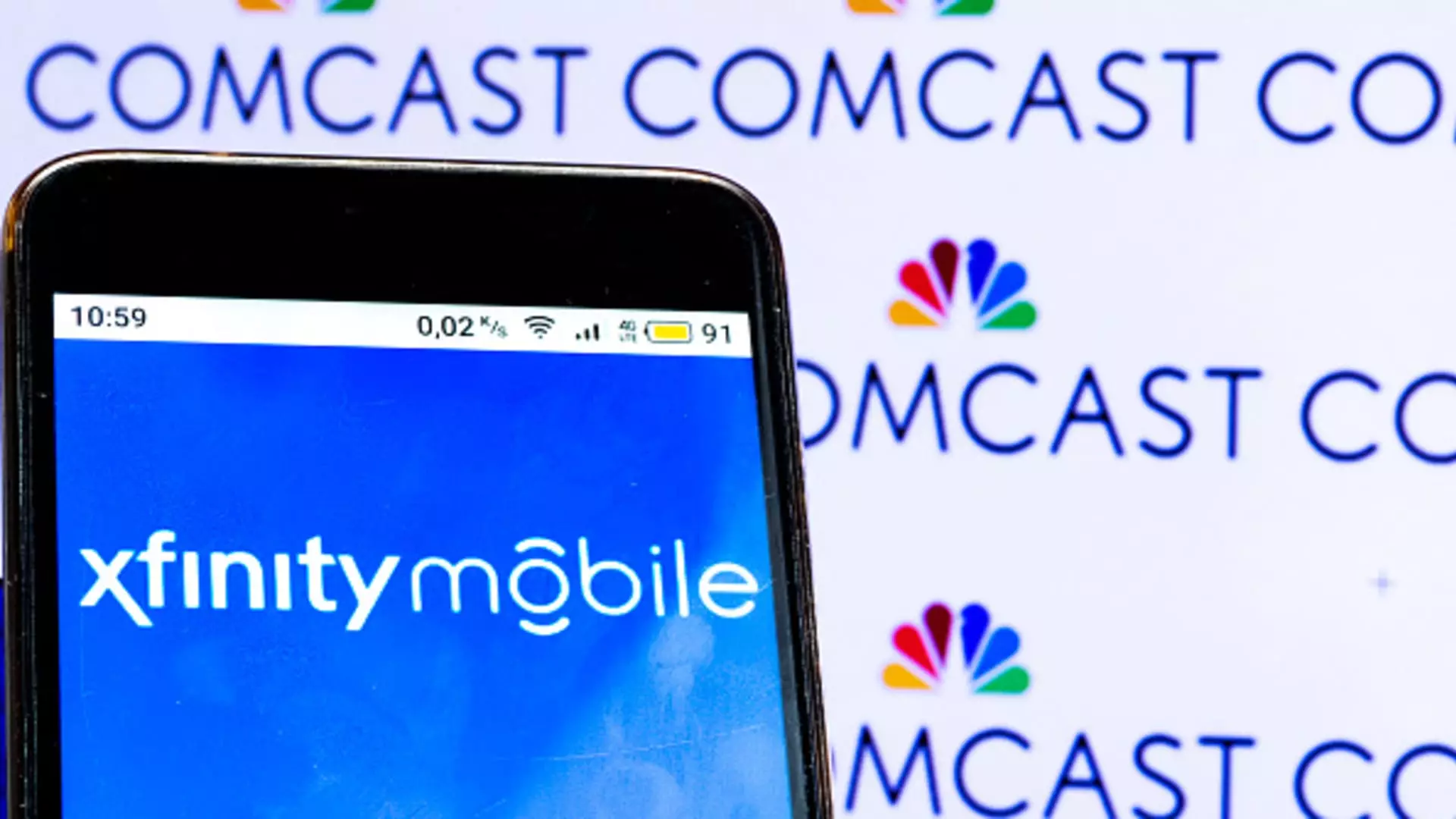In a bold move that speaks volumes about how corporate identities are intertwined with local culture, the Philadelphia home of the NBA’s 76ers and NHL’s Flyers, formerly known as the Wells Fargo Center, is now being rebranded as the Xfinity Mobile Arena. While some may welcome this fresh chapter, the transition from a storied banking institution to a tech-forward mobile company raises questions about what it means for Philadelphia’s identity. The new name could resonate as a nod to the contemporary trend of branding, but it also challenges the traditional affiliations that sports venues typically encompass. Why does a city known for its rich history and passionate sports fanbase suddenly find itself slapped with a label of corporate convenience?
This rebranding occurs against a backdrop of a $400 million renovation and ongoing competition among tech renters eager to make a name for themselves. The financial intricacies of this naming rights deal were notably undisclosed, raising eyebrows and fueling speculation regarding what long-term implications may come from leveraging local monopolies for brand identity. It’s not just a name change; it’s a cultural shift in a city that thrives on nostalgia.
Xfinity Mobile’s Push for Penetration
Comcast’s decision to rebrand the arena isn’t merely an aesthetic upgrade; it’s a calculated business strategy aimed at establishing its mobile division as a formidable competitor in an increasingly saturated marketplace. By aligning the Xfinity brand with Philadelphia’s most electrifying sports venue, Comcast isn’t just ensuring visibility; it’s also cultivating consumer loyalty in a sector desperate for attention. The cable giant’s mobile service, launched in 2017, has seen a surge, adding 323,000 mobile lines only last quarter. There’s an undeniable strategic genius here—targeting a market that traditionally would associate the Xfinity name with broadband and cable, now transitioning it to mobile, and leveraging sports as a platform.
However, the question remains: is this strategy sustainable? After all, Comcast has predominantly marketed its mobile services to existing broadband customers. It will soon face the daunting task of drawing in new customers in a market dominated by established titans like AT&T and Verizon. The allure of blending technology with sports may provide a temporary uplift, but can it translate into sustained growth?
Elevating Brand Identity or Diminishing Local History?
Amidst this corporate whirlwind, an alarming trend is emerging: the potential erasure of local history. Names like Wells Fargo carry a weight and nostalgia that represent decades of local sports experiences, while “Xfinity” echoes of a multi-national conglomerate quickly overwriting what makes Philadelphia’s sports culture unique. The essence of local pride often gets lost when the arena’s designation represents a wave of commercialism rather than a community foothold.
For many fans, the emotional connection to venues like the Wells Fargo Center is laden with memories of championship games, iconic moments, and a shared communal identity. With this rebranding, the arena risks becoming just another asset in a corporate portfolio rather than a cherished landmark within the city’s fabric. Can one truly replace a name that evokes such passionate fan loyalty with an easily recognizable corporate label?
The Modern Fan Experience: Connectivity Over Intimacy
As Comcast promises to upgrade the arena with Xfinity Mobile’s Wi-Fi service, the modern sports experience continues to morph into something unrecognizable. While it’s undoubtedly important to enhance connectivity for tech-savvy patrons, there’s a heartbreaking irony in how these advancements may distract from the essence of the live sports experience. Too often, fans are more engaged with their mobile devices than the game unfolding in front of them.
The contemporary sports venue is, unfortunately, as much about advertising revenue and branded experiences as it is about the games themselves. The introduction of Xfinity Mobile’s presence in the arena may provide seamless connectivity, but it will also likely push the audience further into their screens instead of cultivating authentic engagement with the sport, and one wonders if it’s worth losing that immediacy and passion for the sake of improved Wi-Fi.
The Passionate Fan and a Business-First Mindset
“Philadelphia is home to the most passionate fans in the country,” says Steve Croney, Comcast’s chief operating officer for connectivity. While I do not disagree with this sentiment, tying it directly to the Xfinity Mobile brand feels contrived. The competitive spirit that exists is indeed palpable, yet the framing of this as a purely commercial endeavor might dilute the emotional significance that fans experience during games.
While I understand the importance of corporate revenues in maintaining the vibrancy of sports, should we really prioritize profit over the genuine emotional connections that define civic pride? There’s an undeniable tension between satisfying shareholders and nurturing a community’s heart and soul. The Xfinity Mobile Arena represents both an opportunity and a precarious pathway forward—one that might either fortify the bond with Philadelphia sports or gradually sever it.


Leave a Reply